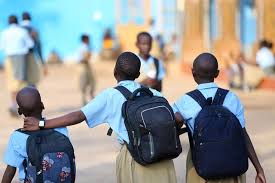As Ugandan schools officially reopened today for the second term, many institutions reported a disappointingly low turnout of learners. This comes despite a clear directive from the Ministry of Education and Sports urging schools to commence teaching immediately.
Dr. Jane Egau Okou, the under-secretary and acting permanent secretary in the Ministry, released a communication to schools on the importance of starting lessons without delay.
She stated, “Teachers and head teachers should be available in schools to ensure learners settle immediately and start the term without further delay.”
The second term is scheduled to run from May 26 to August 22, 2025, as per the official school calendar released by the Ministry.
In addition to the directive for immediate commencement of teaching, the Ministry has introduced new guidelines aimed at improving the quality of education and instilling discipline in schools. These include:
Adjusted School Hours for Nursery Schools: Pre-primary schools are now required to operate from 8:00 a.m. to 12:30 p.m., addressing concerns about early waking hours for young children.
Reduced Teacher-to-Learner Ratio: The ratio has been revised from 1:40 to a maximum of 1:25, ensuring more individual attention for each learner.
Ban on Extravagant School Events: The Ministry has banned extravagant displays of wealth during school functions, including prom parties and student elections. This includes prohibitions on hiring luxury vehicles, helicopters, and engaging in lavish spending during such events. Entertainment activities must now be held only during daylight hours and conclude no later than 6:00 p.m. No entertainment will be allowed during school holidays.
Restrictions on Visitation Days: Schools are now limited to one visitation day per term, between 9:00 a.m. and 6:00 p.m. Only visitors with official visitation cards will be allowed entry. Bringing cooked or processed food into the school by parents or relatives is also prohibited.
These reforms are part of a broader effort by the government to enhance the quality of education and ensure that learners receive adequate attention and care.
However, the low turnout on the first day of the term raises concern. Many classrooms remain half-empty not because of indiscipline or disinterest, but due to the crippling weight of economic pressure on Ugandan households.
In most schools, teachers, though present as per the Ministry of Education’s directive, spent much of the morning waiting in half-empty classrooms.
“How do I take the children back when I haven’t even cleared last term’s balance?” asks Sarah Namutebi, a market vendor and single mother of three. Her youngest, a P.3 pupil, stayed home today.
Namutebi explains that the school sent a list of requirements that includes reams of paper, brooms, jerrycans, and a term’s fees of UGX 230,000 ,“which I simply don’t have right now.”
With inflation driving up the cost of basics, especially during the school reopening, many parents say school re-opening feels more like a deadline for survival than a routine return to learning.
“A dozen books now cost me nearly UGX 20,000 , that’s before I even think about fees,” says Jackson Owor, a boda boda rider whose daughter is in S.2 at a private school in Mukono. He earns roughly UGX 15,000–20,000 a day, depending on fuel prices.
For families where both parents are salaried workers, the delay stems from a mismatch in timing. “Salary comes at the end of the month,” explains Stella Katushabe, a nurse whose children attend school in Fort Portal. “But schools want payment upfront, tuition, lunch fees, uniforms. We need until next week to sort ourselves.”
A recent survey by the Uganda National Household Panel Survey (UNHPS) indicated that up to 62% of households spend more than 30% of their monthly income on school-related expenses during term opening. In rural districts, where subsistence farming is the norm, families often rely on seasonal crop sales , yet the rains this year were delayed, and harvests have been lean.
“Right now, it’s either pay school fees or stock the home with posho and beans,” says Okello Charles, a father of five in Wakiso.
Teachers and school administrators say they are aware of the crisis and try to be lenient, but there’s only so much they can do. “We run the school on fees,” says a head teacher in Kampala who asked not to be named. “When all parents delay, we struggle to feed those who report and pay teachers.”




